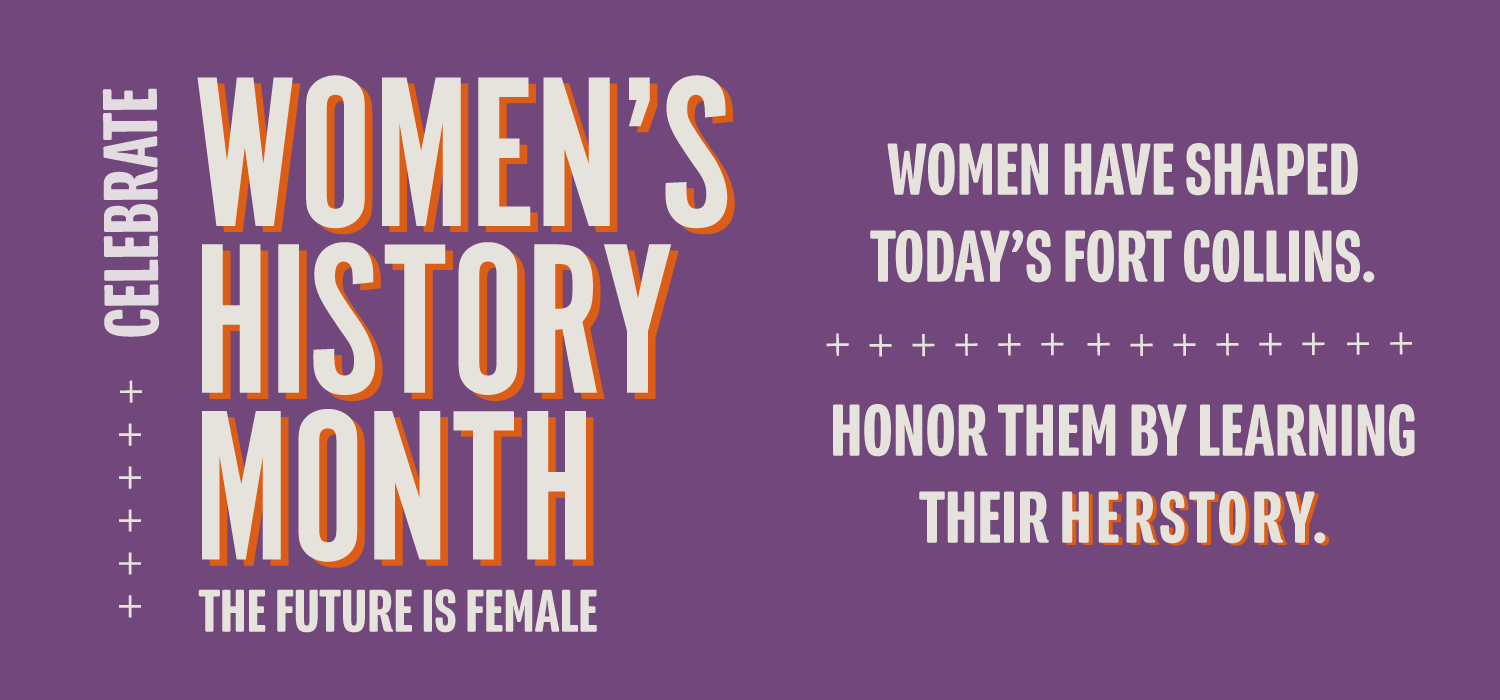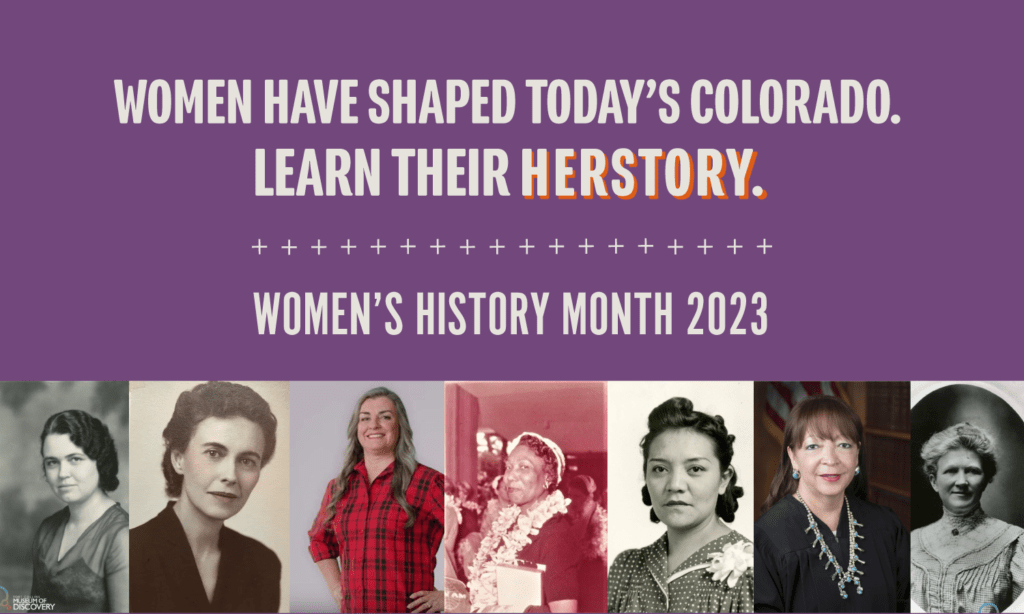
Theodosia Ammons
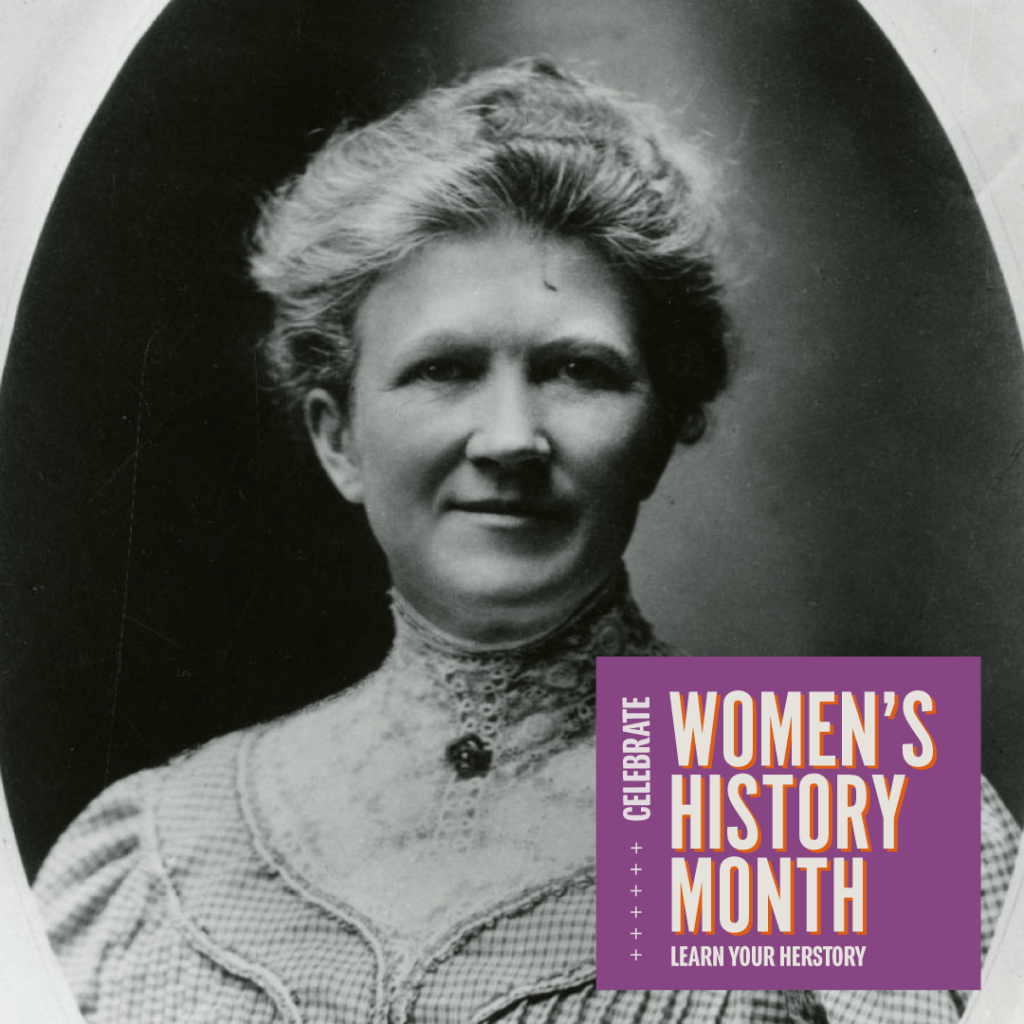
For centuries, higher education and academia was dominated by men. Theodosia Ammons shattered the glass ceiling at Colorado State University. Theodosia had an early interest in teaching and began her career in Denver where she met Eliza Routt who was also the Colorado governor’s wife at the time. Eliza sparked Theodosia’s interest in women’s suffrage and they went on to co-found the Department of Domestic Economy at Colorado Agricultural College, now CSU. Theodosia became the first woman on staff in 1895. Just seven years later in 1902, Theodosia became the dean of the department and was elected as the president of the Colorado Equal Suffrage Association. She represented Colorado at the National Convention of Delegates of Woman Suffrage in Washington D.C. She never married and continued to advocate for suffrage until her death in 1907. Today, approximately 55% of CSU’s workforce are women.
Pauline Birky-Kreustzer
The Peace Corps mission is, “To promote world peace and friendship” through understanding. Thanks to Pauline Birky-Kreutzer, this world-famous organization has roots in Fort Collins! Pauline was a pioneer of the program at CSU. After spending two years working with women and girls in Iran, Pauline became a research associate at CSU, working under the direction of Dr. Maurice Albertson. Dr. Albertson’s studies centered around the feasibility of “youth corps” overseas and together with Pauline, they created a report and proposal on the Peace Corps to present to Congress. The proposal passed and went into effect in 1961 just one year after John F Kennedy had initially proposed the idea of a Peace Corps in his 1960 campaign. Pauline went on to help establish the Peace Corps in many different nations keeping her goal of improving the lives of women in girls in mind. Since its inception, the Peace Corps has welcomed over 240,00 American volunteers in over 142 nations across the world.
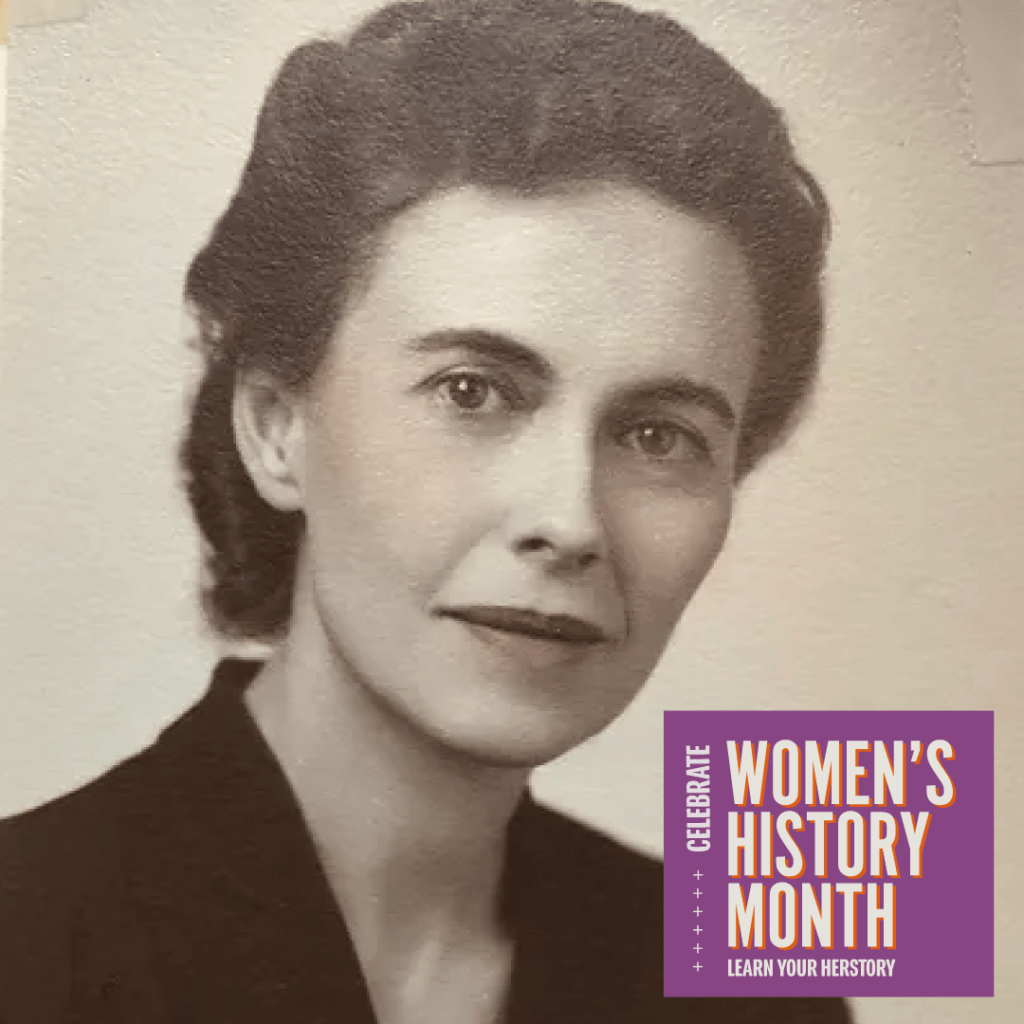
Hope Sykes
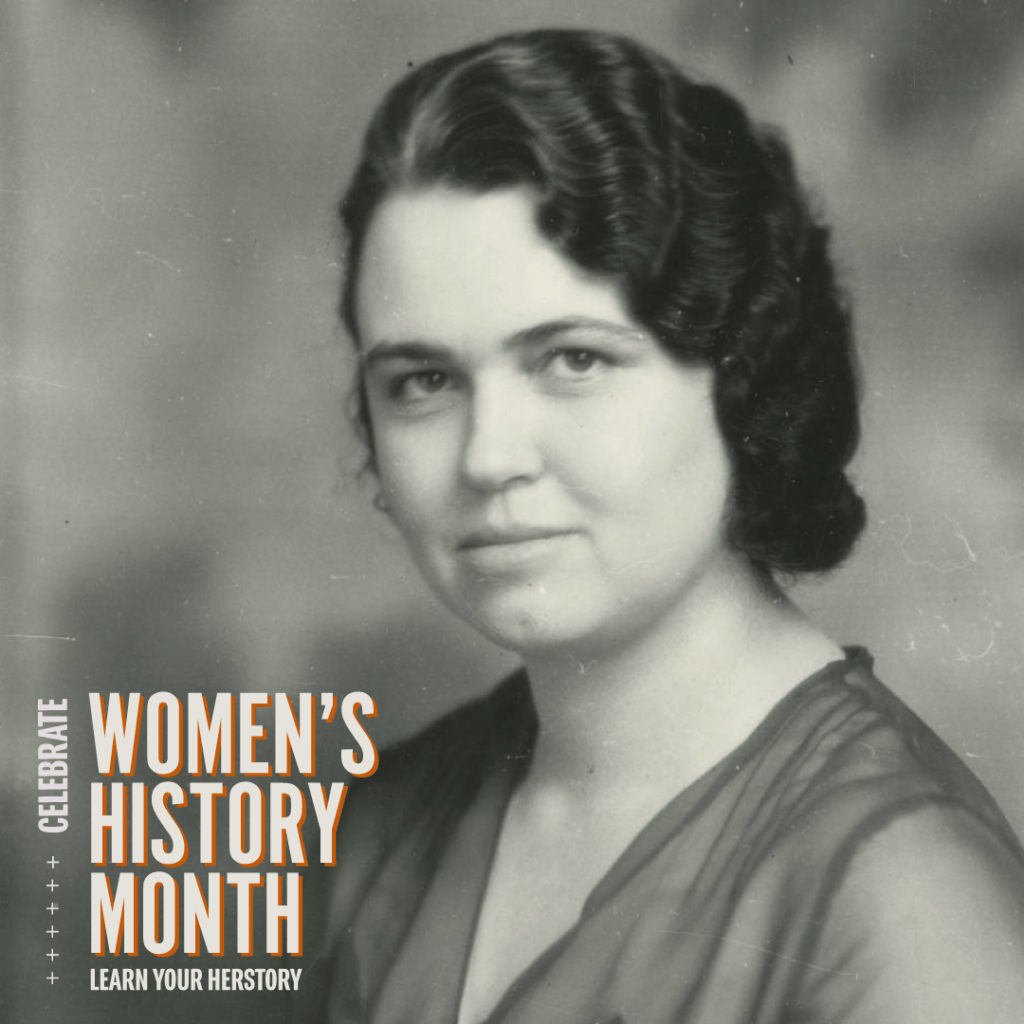
The humble beet used to be the backbone of the United States sugar industry. It was also a cornerstone of the Fort Collins economy. Many families from across the country and the world came to Northern Colorado seeking better opportunities through farming sugar beets. The first waves of migrants to the area were majority German and Polish, among them was Hope Williams. Hope taught children at the Plummer School, a schoolhouse surrounded by beet fields where children of immigrant families were educated. Many of children Hope taught missed school in order to work the sugar beet fields, suffering poor labor conditions for lower wages. Their employment and living situations resulted in higher rates of health problems and lower rates of education. Hope eventually married Howard Sykes and left teaching to help run his gas station business during which time she began compiling her book, “Second Hoeing.” This controversial and impactful publication detailed child labor conditions in the sugar beet fields. It has been connected to the reformation of many child labor laws across the nation and was named by The New York Times Book Review to be one of the most important books in the overhaul of child labor laws. Thanks in part to Hope and her book, there are now legal safeguards in place to protect children from exploitation. You can still read “Second Hoeing” in the Fort Collins Museum of Discovery archives.
Jovita Vallecillo Lovato
You may recognize Jovita Lovato from last year’s Women’s History Month campaign; she is one of the most notable women in Fort Collins history and shattered glass ceiling after glass ceiling in her pursuit of education. Jovita Vallencillo Lobato was born in Fort Collins in 1908 – her parents were sugar beet farmers and would encourage both of their children to attend public school and college. Jovita is the first known Mexican-American to graduate from public school in the Fort Collins area in 1932 and became the first Mexican-American student to graduate from CSU in 1936 with degrees in economics and sociology. Undeterred by societal barriers, Jovita would go on to earn a master’s degree in psychology and teach in schools in CO, NM, and NJ. 60 years after she graduated, she and her brother Salvador were honored at the CSU El Centro Achievement Awards. Over 1,000 Hispanic and Latinx students were enrolled at CSU that year, following in Jovita’s footsteps.
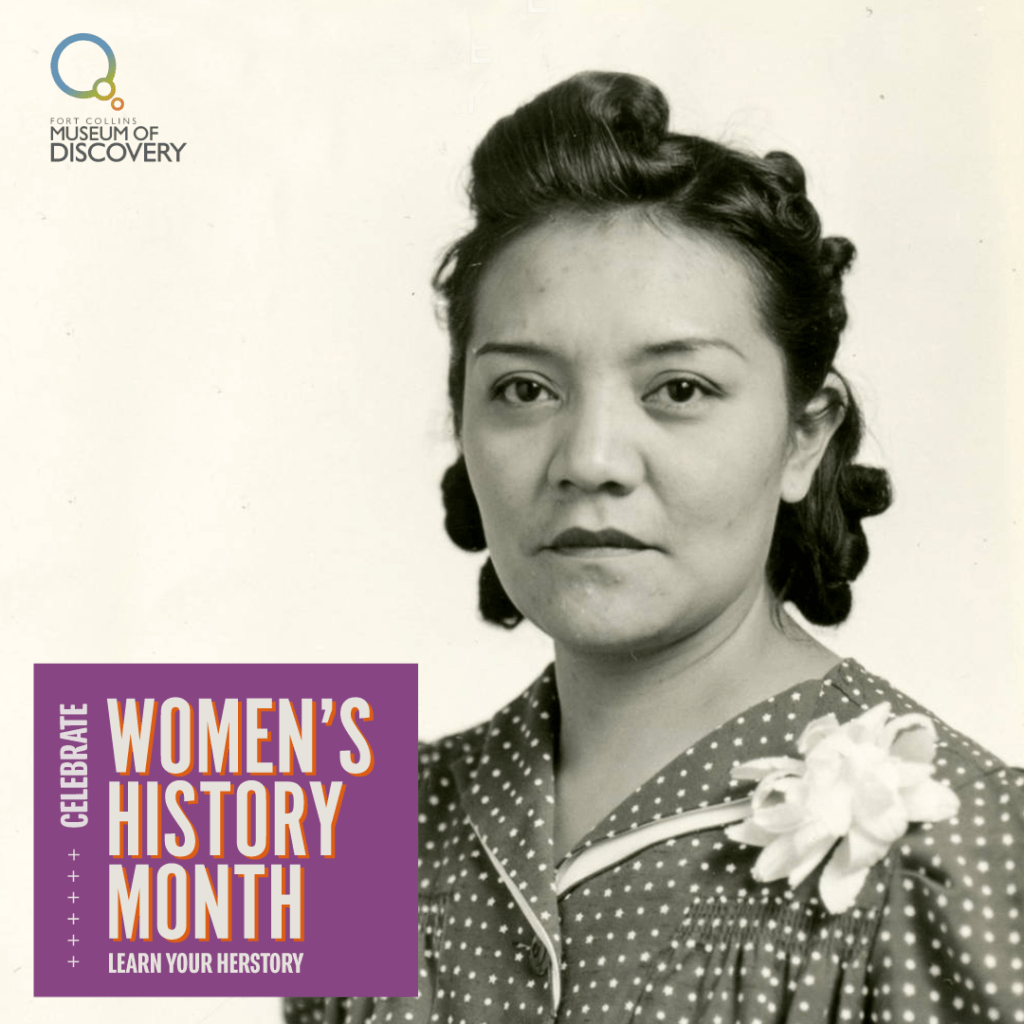
Pauline Robinson
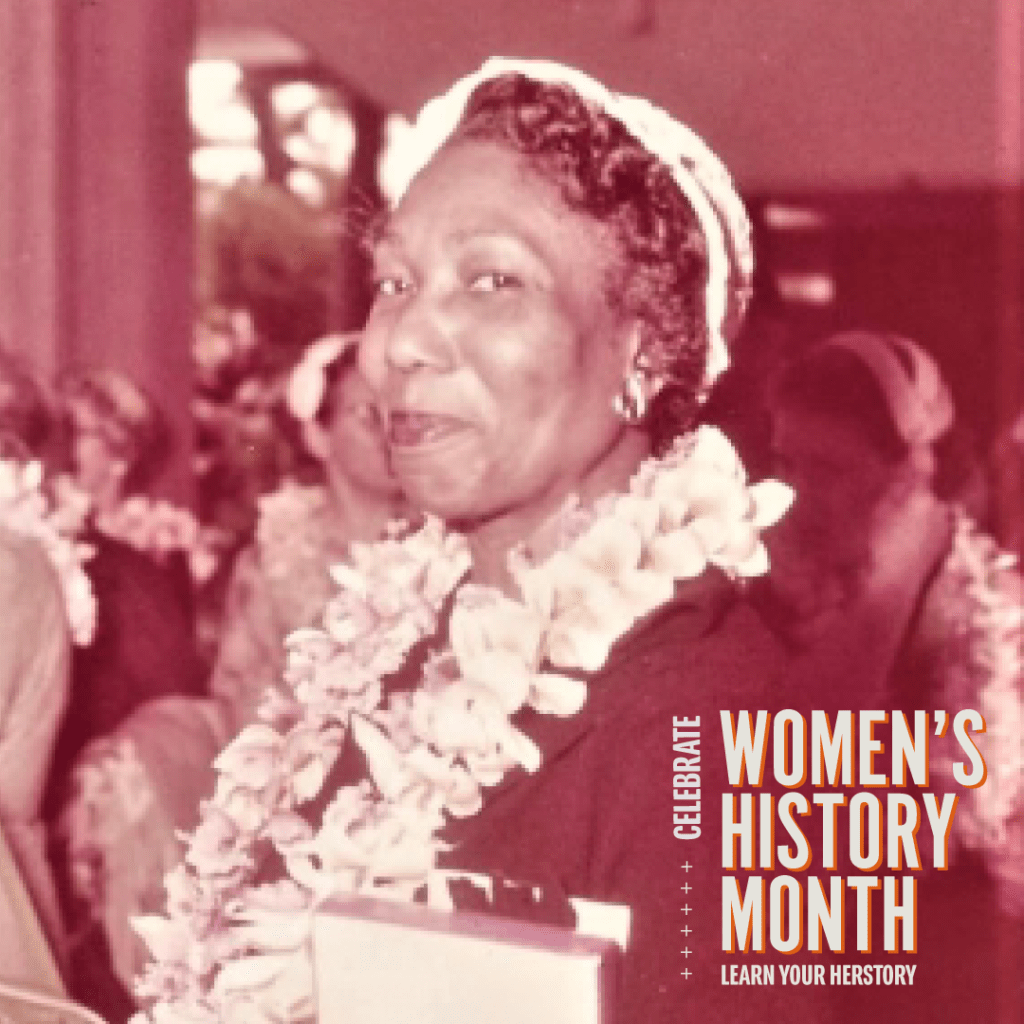
Ever participated in our Summer Reading Challenge? Pauline Robinson was instrumental in Denver’s very first summer reading program which went on to become one of the most successful programs in the country. She was also the first African-American librarian in Denver and spent a lifetime fighting for equal rights and better educational opportunities for children. Pauline was one of eight children and grew up in Oklahoma with a love of books fostered by her father and grandfather. Eventually, she moved to Denver where she graduated high school, married, and went on to college at Denver University. She graduated from DU with a degree in Library Science and became the first Black librarian in Denver in 1943. She began her career in the historically black neighborhood Five Points, at the Community Vocational Center Library. The library had poor funding and its collection that was mostly made up of materials other Denver Public Library (DPL) branches were getting rid of. Pauline often used or raised her own money to grow the library’s collection. Eventually, Pauline, along with several school principals successfully lobbied for a new library in the neighborhood and she was officially recognized as Denver’s first African American librarian. She eventually became the Children’s Coordinator for DPL and was the first to develop Heritage book lists centering around different identities which diversified the library’s collection and provided resources to traditionally underserved communities. Pauline was also a fierce Civil Rights advocate and was instrumental in desegregating Lakeside Amusement Park, created Denver’s Negro history week which eventually became Black History Month, and started the first Negro history collection, now the Black History collection at DPL. After a lifetime of service to her community, Pauline passed away in 1997. Today, a branch of DPL, the Pauline Robinson Branch Library continues to serve the Denver community in her vision.
Sister Mary Alice Murphy
Have you heard of the Murphy Center in Fort Collins? It’s named after Sister Mary Alice Murphy! For decades, Sister Mary ran community outreach programs in Northern Colorado including affordable housing, soup kitchens, and eventually the Murphy Center for Hope which centralized resources for individuals experiencing homelessness. She first came to Colorado to attend Denver University for her Master’s Degree and eventually moved to Fort Collins where she led Catholic Charities Northern beginning in 1983. She dedicated her entire life to the underserved communities of Northern Colorado. Today, the Murphy Center collaborates with other care providers in the area and provides services to over 3,000 people a year in Larimer County. Sister Mary Alice continues to live in Fort Collins today and will turn 93 years old this year. In 2021, Mayor Jenny Arndt declared her birthday, August 7th, Sister Mary Alice Murphy day in Fort Collins. Any individual seeking assistance from a resource provider from the Murphy Center can drop by Old Town Library on Fridays from 2 – 5 PM.
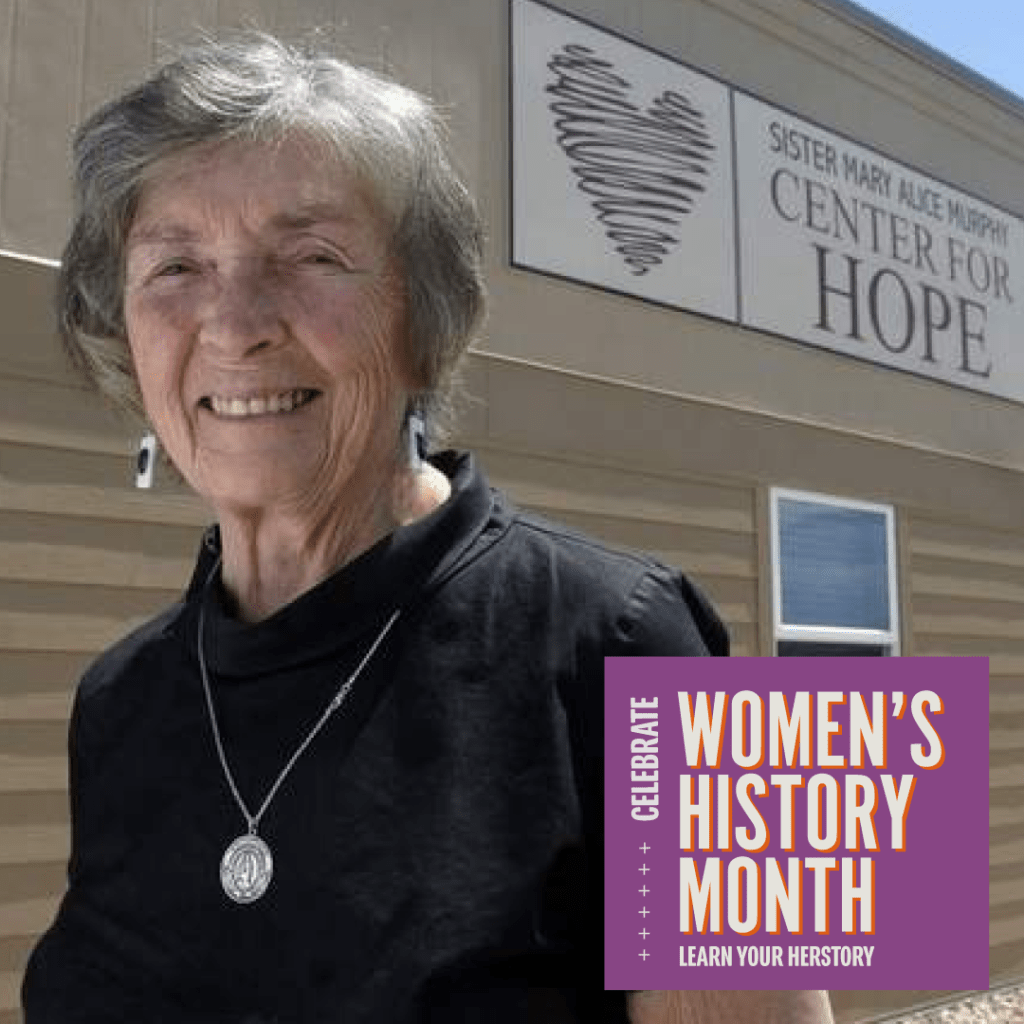
Debra Bueno
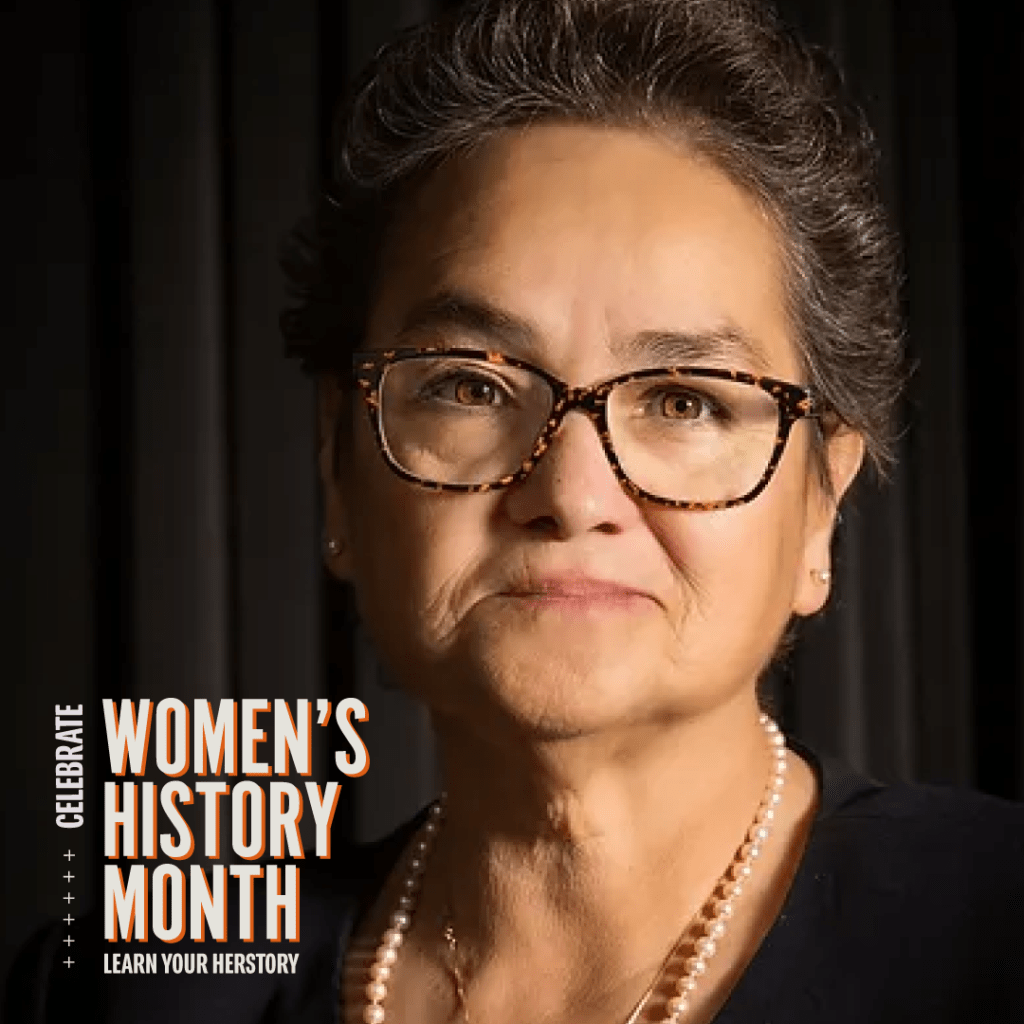
The Northside Community Aztlan Center is a cornerstone of the Fort Collins community. Everyone ages 0-99 can come enjoy a space to workout, hangout, or simply be. For 35 years, Debra Bueno was the director of Northside Aztlan planning programs to engage youth in summer activities and always maintaining an open door. A 2017 article from the Coloradoan called her “the heart and soul of the Northside.” With a mission to empower young people to take leadership roles, she dedicated her life to community service. As a native of Fort Collins and the Tres Colonias neighborhood, Debra also became inspired to serve her community by her father, J. Victor Bueno Sr. who spent a lifetime advocating for the Hispanic and Latinx community in Fort Collins. Debra was inducted into the Colorado Hispanic Hall of Fame in 2018 as the Unsung Hero of the year.
Christine Marie Arguello
There are many firsts in Christine Arguello’s life: she is the first Hispanic United States District Court Judge for Colorado, the first Latina from Colorado to be admitted to Harvard School of Law, the first Hispanic to be promoted to partner at one of the then “big four” law firms in Colorado, the first Latina to be tenured to full professor at University of Kansas School of Law, and the first Hispanic Chief Deputy Attorney General for Colorado. Judge Christine Marie Arguello was born in Thatcher, Colorado and grew up in poverty. She went on to become a first-generation college graduate from the University of Colorado before beginning a career of breaking glass ceilings. Over her career, she fostered a passion for mentoring young people and teens who aim to break into the legal field and created the “Yes We Can” mentoring service program in 2014 where would-be lawyers are matched with three mentors and eventually awarded scholarships for LSAT programs. Judge Arguello has been indicted into the Colorado Latino Hispanic Hall of Fame, the Colorado Women’s Hall of Fame, and has won numerous awards in her field. Today, she continues to serve as a United States District Judge. Her groundbreaking career will inspire generations of women that aim to make a difference in the legal system.
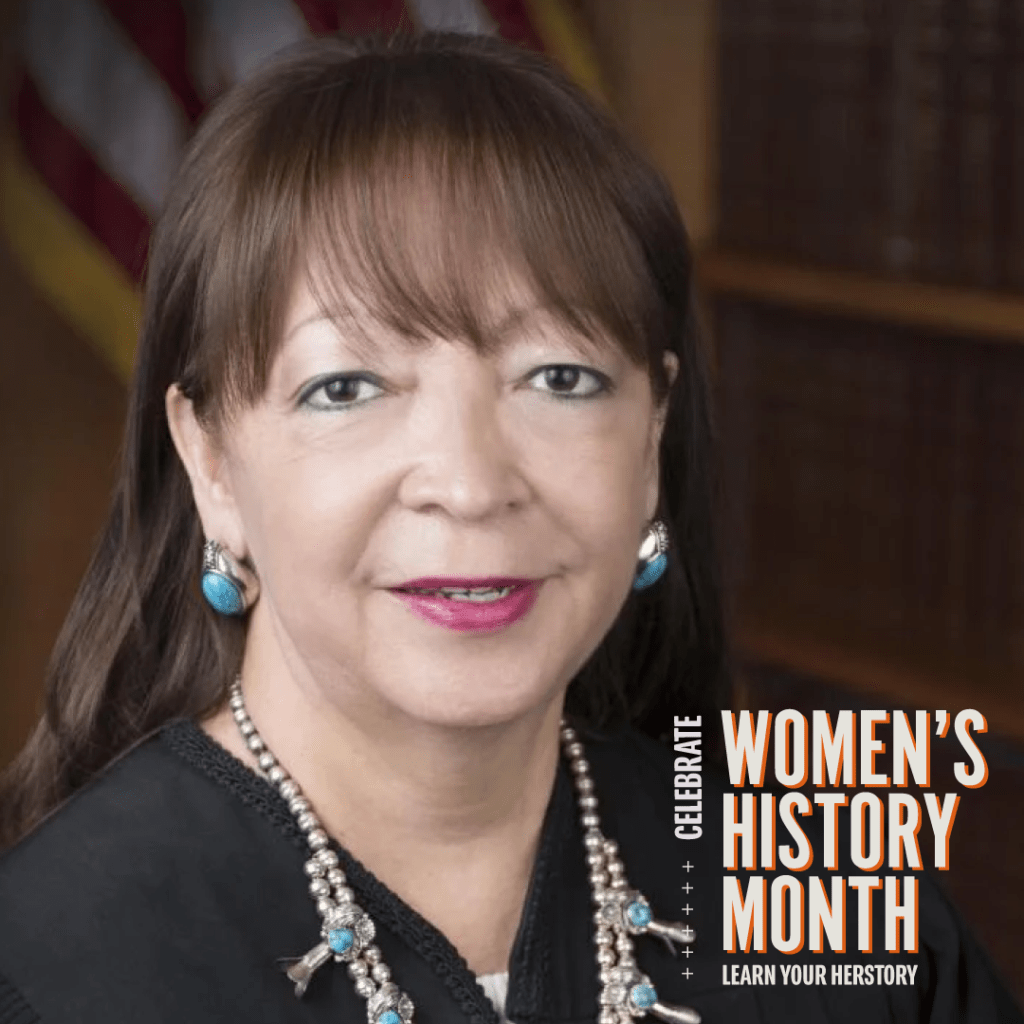
Patty Lopez
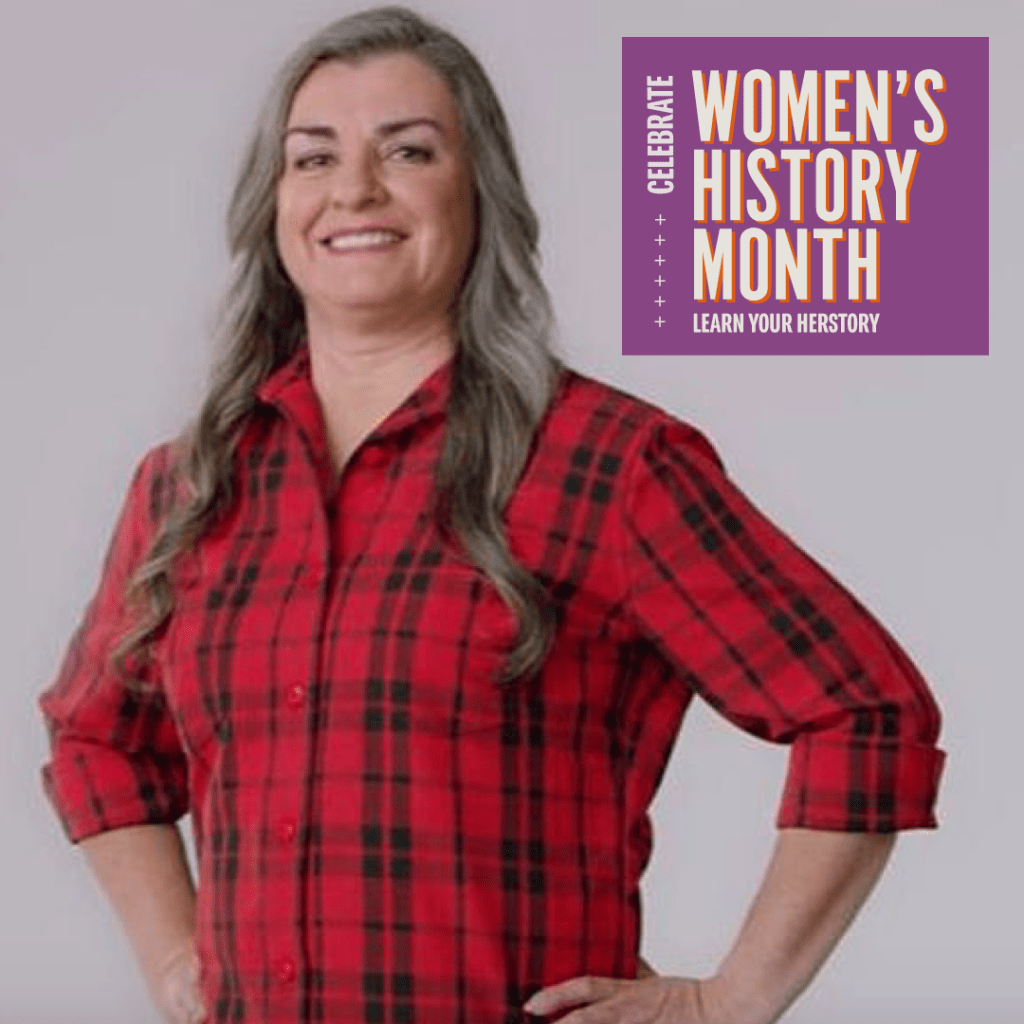
You may recognize Patty Lopez from a paper towel commericial. A celebrated software engineer, Patty was featured as part of Brawny’s “Strength Has No Gender” campaign and continues her fruitful career at Intel in Fort Collins today. She has seven patents in her field and was also the first in her family to get a post-graduate degree. Additionally, was one of the few Latinas in the United States to earn a P.h.D in STEM in the mid 1990s. Out of college, she was hired by HP in Fort Collins. She was the only woman in her workplace upon hiring. Her plan was to move up the ladder at HP and when she applied for a promotion, they told her they chose the best person for job. Later when she asked for feedback about her application and interview, her manager told her that next time, she would need to be “the safe choice” to which he quickly corrected to “best choice.” This statement, clearly based around her gender in a male-dominated field impacted her deeply sowing self-doubt within. However, Patty mustered the strength to walk away from HP and began a successful career working for Intel where she remains to this day.

